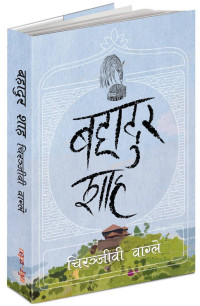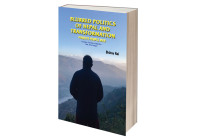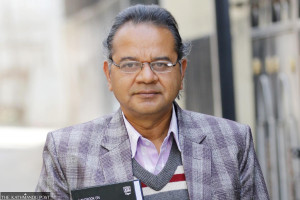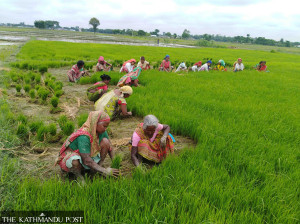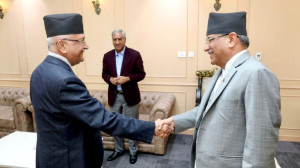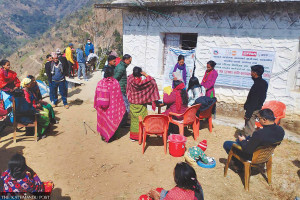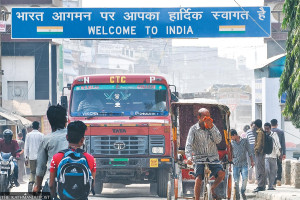 16.12°C Kathmandu
16.12°C KathmanduBooks
Examining power, casteism and change in Nepal
‘Blurred Politics of Nepal and Transformation: Maoists People War’ by Bishnu Prasad Rai sheds light on challenges faced by marginalised communities while proposing potential ways for the country’s development.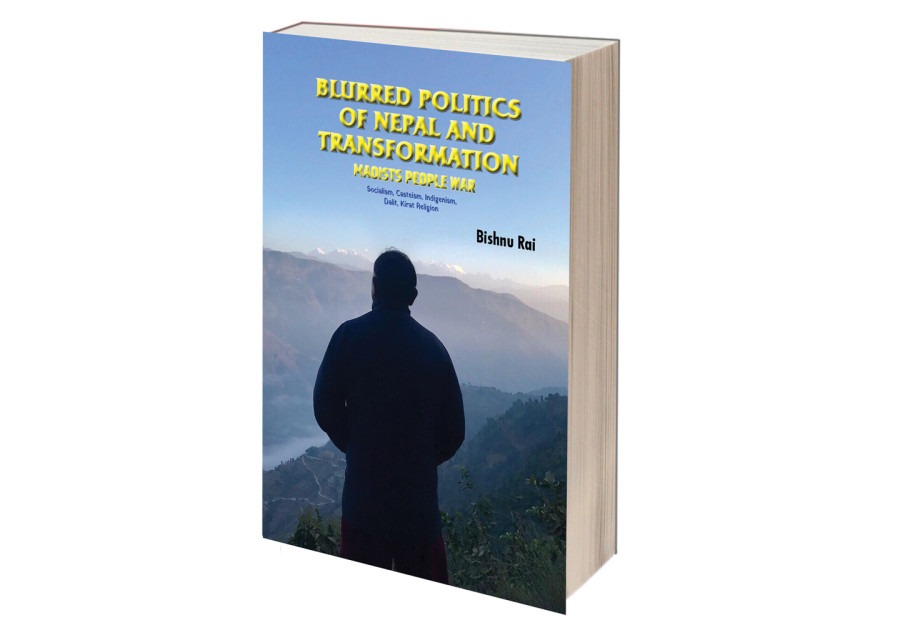
Mahalaxmi Thapa
Professor Bishnu Prasad Rai, a poet and story writer, with a literary career spanning 30 years, recently published a book titled ‘Blurred Politics of Nepal and Transformation: Maoists People War’. Rai addresses a broad spectrum of topics, including power dynamics, leadership, religion, socialism, casteism and nationalism in this book. His writing style is sincere and easily understandable, catering to a diverse readership. The book provides a nuanced analysis of Nepal’s social and political landscape, exploring challenges faced by marginalised communities like Dalits and proposing potential solutions for the country’s development and progress.
This book provides a thorough exploration of Nepal’s intricate political landscape. Using engaging storytelling, the author delves into a range of themes that shape the country’s socio-political dynamics. Covering topics from opposition to federalism, secularism and republics to the ongoing issue of Hindu caste discrimination, the author fearlessly examines the complexities at play.
Additionally, the book sheds light on the influence of a specific Aryan core group, while also acknowledging the often-overlooked contributions of multicultural native communities that enrich Nepal’s cultural tapestry. The analysis extends to challenges posed by globalisation, foreign powers, corruption, and the limited focus on national production.
With a discerning perspective, the author questions Nepal’s path towards socialism and explores the potential consequences of heavy reliance on foreign labour and remittances. Overall, this thought-provoking analysis serves as a wake-up call, highlighting various factors that impede Nepal’s structural growth and development.
Chapter one delves into power, leadership and development. It explores the theoretical aspects of power dynamics, focusing on their impact on development. Chapter two focuses on the Kirat Mundum philosophy, examining its religious and cultural aspects. Chapter three discusses socialism and democratic socialism practices in modern Nepal, shedding light on their significance and impact. Chapter four explores ideological politics, providing insights into its dynamics and implications. Chapter five sheds light on the oppressed anthropology of Dalits and the author’s perspectives of casteism, feudalism, capitalism and globalisation. It discusses these perspectives through the lens of the oppressed anthropology of Dalits.
Chapter six examines the relevance of Nepali Marxism in the context of the Covid pandemic and its effects on the government and the economy. Chapter seven discusses the significance and potential impact of the democratic movement and national development in the context of Nepal’s indigenism. Chapter eight explores nationalism, racialism and political lamentation in Nepal, shedding light on the challenges and potential solutions. Chapter nine delves into the transformation of Nepal’s social and political landscape, specifically the impact of the People’s War.
Lastly, chapter ten explores an ethno-musical anthropology study in Nepal, focusing on the culture of the Kirat community and the Shakela dance performed during Udhauli Ubauli Parva. The book is centred on the political environment and conditions, along with the origin, development, and performance of Kirati culture.
Rai is not just a talented writer; his expertise as an anthropologist, poet, storyteller, lyricist and professor adds depth to his work. Crafting captivating stories, thought-provoking poems and meaningful lyrics for three decades, Rai demonstrates talent across all creative fronts. His ability to capture Nepal’s social fabric and highlight important issues is truly remarkable, as seen in this book. His versatility and use of his platform to spark conversations and inspire change are awe-inspiring.
‘Blurred Politics of Nepal and Transformation: Maoists People War’ offers a fascinating exploration of Nepali society and politics. Rai’s analysis of power dynamics, religion, socialism and casteism, among other topics, is very insightful. His critical examination of these themes sheds light on the complexities of Nepali society. Readers are likely to gain a deeper understanding of the issues through his thought-provoking exploration.
Blurred Politics of Nepal and Transformation: Maoists People War
Author: Bishnu Prasad Rai
Year: 2023
Publisher: Bibek Rai
Distributer: Ratna Pustak Bhandar (Nepal)







